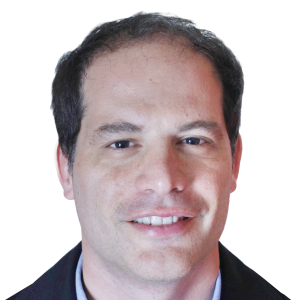For the first time in 13 years I felt like a true Parisian

Roula Khalaf, Editor of the FT, selects her favourite stories in this weekly newsletter.
How do you tell your kids that their football practice is cancelled because jihadis have shot dead 12 people in an attack on a newspaper office 10 minutes’ walk from home? I tried to break it gently to my eight-year-old daughter. She burst into tears. I suggested she cheer herself up by watching High School Musical on the iPad.
I used to be a Londoner but I have spent the past 13 years trying to become a Parisian. Watching the capital cope with Wednesday’s attack on Charlie Hebdo and then Friday’s hostage-taking in a kosher supermarket has helped me understand the place better. Like any big city, Paris is made up of millions of ordinary daily interactions between people of different ethnicities. Most of those interactions work. Paris can handle this week’s atrocities as impressively as London did its attacks of nearly a decade ago.
Like many immigrants in Paris, I began integrating only after I had children here. Mine were born while we were living in the 11th arrondissement — the dense, ugly, ethnically mixed and rapidly gentrifying neighbourhood where Charlie Hebdo has its little office.
Greater Paris has about 1.5m nominal Muslims, more than any other EU city. Over the years we have come into contact with a lot of them. Fatima from the Comoros Islands, a tiny headscarfed childminder at our local crèche, became the personal protector of our most anxious child. Nowadays, most Wednesdays I watch our kids’ football practice with a west African Muslim dad. He and the coach, Mehdi — presumably a nominal Muslim — are helping my daughter in her (often literal) battle for acceptance in a boys’ team. I tell these stories to American friends and relatives when they forward me emails about fundamentalist Islam’s supposed conquest of France.
Of course Paris has ethnic tensions. It always will. Very occaionally, these tensions turn violent. Jews, Italians and Poles once struggled to be accepted just as Muslims do now. But mostly Parisians successfully live together. In the diverse Belleville neighbourhood close to Charlie Hebdo I once saw a class pouring out of a nursery school: toddlers of several shades, holding hands, while their teachers issued commands in French.
Two jihadis attacked Charlie Hebdo on Wednesday. Some 1,000 French Muslims have been involved in jihad in Iraq and Syria. That leaves perhaps 5m nominal French Muslims with more banal ambitions: a decent job, a nice apartment and something good on TV after dinner. Two people killed on Wednesday were nominal Muslims who had been helping keep Paris ticking over: Mustapha Ourrad, subeditor at Charlie Hebdo, and Ahmed Merabet, the policeman gunned down on the street while begging for mercy.
One measure of a society’s dysfunction is murder. Greater Paris, with 12m inhabitants, averages about 135 homicides a year. That’s about 1.1 murders per 100,000 people — less than a third the rate of unprecedentedly safe New York. The far-right cliché of a Disneytown centre surrounded by burning suburbs simply is not true.
A Muslim in the poor suburban town of Dreux once told me what distinguished her family from non-Muslim friends: “We have a barbecue, some people don’t eat pork.” In fact, many Muslims in infectiously secular France do eat pork. Fewer than one in 20 probably attend mosque every Friday, according to some academics. But almost every French Muslim — nominal, pious or toddler — will find life harder after Wednesday.
An hour after Wednesday’s murders, I walked to Charlie Hebdo’s street. Neighbourhood life went on as usual: people lunching in cafés or queueing in bakeries to buy galettes des rois — cakes eaten at Epiphany in a Christian tradition adopted by many Jews and Muslims.
This corner of Paris has experience of violence. In 1789 our local furniture makers stormed the Bastille to start the French Revolution. Schools have black plaques on their façades, commemorating local Jewish children deported under Nazism. Postwar, the 11th was quite criminal: Inspector Maigret, Georges Simenon’s fictional detective, lived on Boulevard Richard-Lenoir, where Merabet was murdered. Now the 11th harbours — besides various synagogues — the theatre of anti-Semitic “comedian” Dieudonné.
On Wednesday night, I joined the crowd in Place de la République where people chanted: “Nous sommes Charlie.” For the first time in 13 years, I loved Parisians, and I felt like one. Terrorist attacks can have unintended effects.
Paris will now choose its response. I have seen two possible ones. In 2004 the Netherlands lashed out after a Dutch-Moroccan jihadist killed film-maker Theo van Gogh. The loyalties of Muslims were questioned; there were tit-for-tat attacks on churches and mosques.
Paris will probably respond more like London did after four jihadis killed 52 people on July 7 2005. Most Londoners closed ranks around the city’s Muslims. A week after the bombings, people gathered to commemorate at Trafalgar Square. The moment Sir Iqbal Sacranie, then head of the Muslim Council of Britain, rose to speak the square gave him an ovation. Multicultural London has done pretty well since. So should Paris. If you live in one of these fascinating, rich and increasingly twinned cities, you have to accept an uncomfortable fact: jihadis are a tiny minority among western Muslims and yet we will never be entirely safe from them. That’s life. Next week football practice will be on again.
——————————————-
Letter in response to this column:
France must tackle pain of the ghettos at its roots / From Stuart Grant
Comments